When you crave a natural high, few things can beat traditional kizomba – the celebration dance out of Angola that has captivated music and dance lovers worldwide.
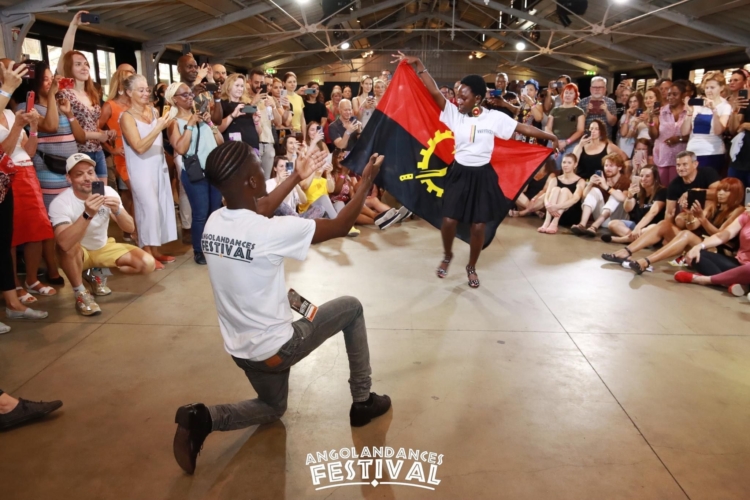
In December 2019, my father was fighting cancer for the second time while I juggled work commitments with ever-increasing home and hospital visits. In a selfish bid to help me cope, I was desperate to dance despite the guilt that came with that escapism.
I discovered kizomba, aka the African tango, through an expat Angolan community sharing their love for the music and dance of their homeland with a small following of eager students. With its roots in slavery, like so much African music and dance, the lyrics centre on political struggle, heartbreak, betrayal, loss, and love – human stories that move you whether you understand the language or not. The music is transformative, connecting and uplifting, in line with its celebratory intention. “Kizomba” means party in Kimbundu, a Bantu language from Angola. While it may seem intimate because the dance hold is like a hug, this traditional style is all about family.
Soul of a nation
The dancer leading Forever Dance Academy then agreed to a private lesson. I found him in high spirits, singing at full volume and eyes glued to a prerecorded big-screen concert performance in Angola. The show’s star was Luanda-born Paulo Flores, UN Goodwill Ambassador for Angola, an author, composer and performer credited with having the voice of an angel and being one of the most important representatives of Angolan music. According to delicioustunes, “His music draws poetic sketches about love and life, as well as Angola’s history and politics and gives a voice to the soul of a nation by preserving Angola’s story.”
Thirty minutes became two hours. We danced through the entire concert until the sun set, signalling the time to return to a more practical reality.
With the dancer in mind
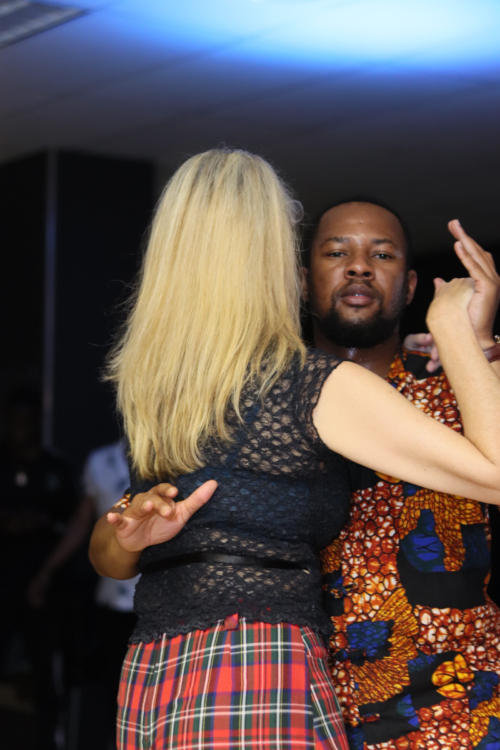
A few days before the pandemic hit, my father passed away. Through the pain and disbelief, I turned again to kizomba – music this time because we were in lockdown – and found a lifeline in OurSalsaSoulRadio (OSSR). Del Salereo and Sofi Cook established the London-based radio station as a lockdown project to help dancers save their sanity. They recruited passionate Latin, jazz funk, and soul presenters, persuading them to log in from far-flung corners to play for listeners desperate to feel connected to their favourite pasttime – and music.
It worked both ways. For newbies, OSSR was a gateway to Latin music; for others, it was a way to learn from the greats like the late Dave Hucker, aka “The Vinyl King”, because he played off nothing else. Also referred to as the doyen of the Latin American groove and world music, he brought fans some of the best African music with anecdotes that kept us hanging on his every word.
Fellow presenter Christian Jean-Francois has a similar knack. Hailing from the French Caribbean, his career has led to acclaim in teaching and performing kizomba, promoting musicians and producing albums, and playing zouk, kompa, kizomba, semba and afro beats at clubs and festivals worldwide. His intention on radio is to let people discover a country’s music, but always with the dancers in mind. It has to be danceable.
Angolan musical heritage
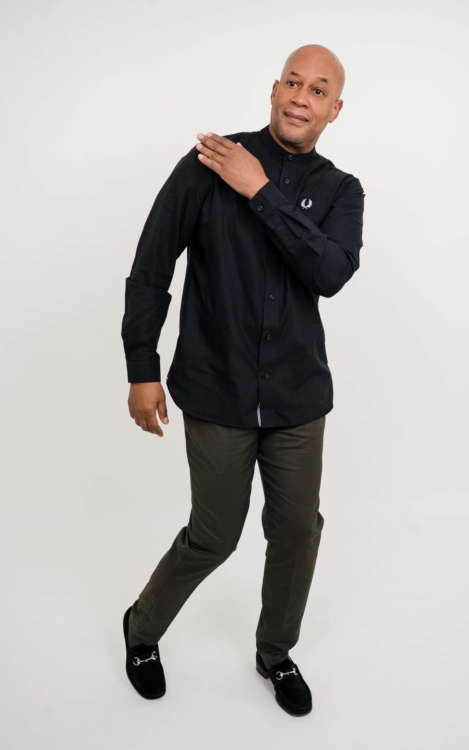
Christian Jean-Francois (above) explains that kizomba is from Angola, from the Kimbundu word meaning ‘party’. Kimbundu is the second most widely spoken language in the country. “It is the same as the French Caribbean word, zouk, which also means having a party, dancing all night and enjoying the music. Today, kizomba music is heavily inspired by kompa from Haiti and zouk from Guadeloupe and Martinique while the kizomba dance is deeply influenced by the semba from Angola,” he says.
Zouk has always been popular, but now kompa is “in fashion” and played at all PALOP (Países Africanos de Língua Oficial Portuguesa; Portuguese-speaking African countries) events. The lyrics for kompa have always been “very powerful, very political, very engaging” – and they are still relevant today as the country battles a state of emergency and a legacy of slavery dating back to the 18th century. A large part of the slave population was African-born, from several West African peoples.
His intention, when he plays for OSSR, is to educate listeners about the music and the musicians. “Many African musicians are known to audiences, but they don’t know they’re African. For example, Africando is a collaboration spearheaded by West African star producer Ibrahima Sylla and Malian arranger Boncana Maïga, bringing together salsa musicians based in New York with Senegalese vocalists who have long been interpreting Latin-infused melodies. Among them are Pap Seck (formerly of Star Band de Dakar), Nicolas Menheim (formerly of Youssou N’Dour’s Super Etoile de Dakar), and Medoune Diallo (previously associated with Orchestre Baobab). So a lot of people in salsa will know the songs, but they won’t know the artists are from Senegal.”
One love, one dance
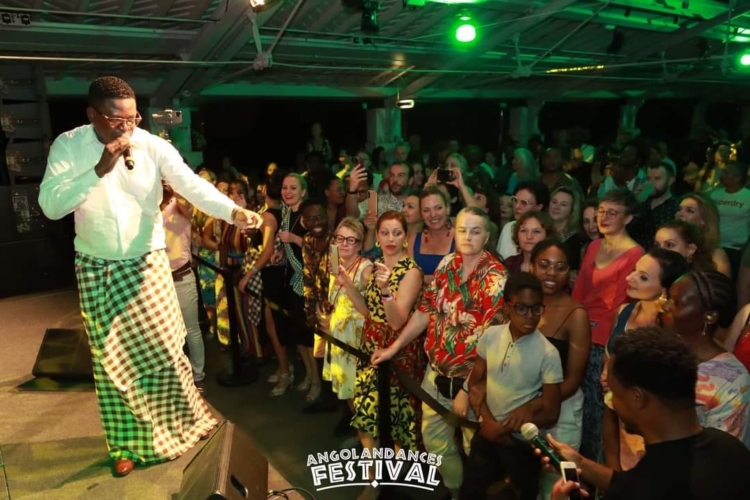
Christian Jean-Francois has a special connection with Senegal because he has worked with Senegalese musicians and bands who are famous today. He was tour manager for Cheik Lo from Senegal, Papa Wemba from Congo and Salif Keta from Mali (Africa Fete 98 US and Canada tour) and has been promoting and producing albums since 1998 for Thierno Koite, who featured on the track ‘Seven Seconds’ by Youssou N’Dour & The Super Etoile, among others. Koite is a member of Orchestre Baobab, the iconic West African dance band that celebrates its 50th anniversary this year, which Christian Jean-Francois managed from 2015-2020.
While he has been involved in music throughout his life, he also teaches dance, including kizomba, tarraxinha, urban kiz (French style), and semba de roda. An Angolan head-hunted him to establish a kizomba dance school, believing he would be an asset because of his Guadeloupian heritage and connection with Zouk.
Coming full circle
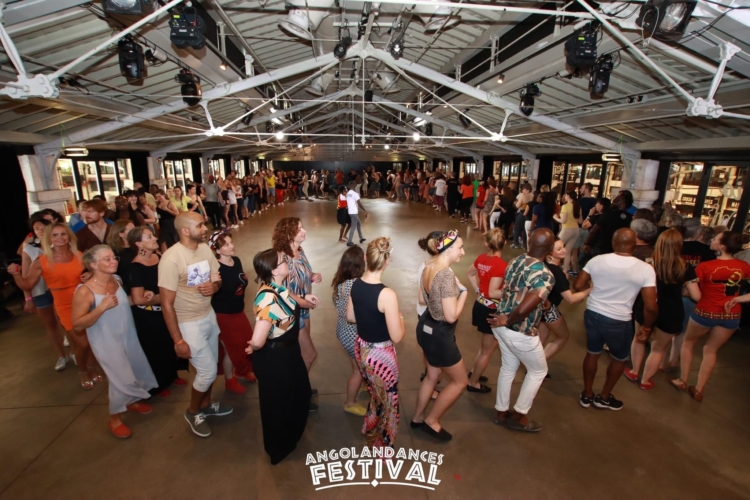
“In the PALOP world, you have Angola, Cape Verde, Guinea-Bissau, Mozambique, São Tomé and Príncipe and Equatorial Guinea, and what people don’t know is we are their cousins – from Guadeloupe and sister island Martinique. The Zouk band, Kassav, from Guadeloupe and Martinique, is one of the most popular in Angola and in Luanda (the country’s capital) there’s a museum of zouk – La Maison du Zouk, which has a collection of 10,000 albums. No matter where I’ve been in the PALOP countries, the DJs always play a 30-minute classic zouk set.”
“We have a saying where we’re from – ‘One love, one dance’. Gwo ka (the Creole name for the traditional drum from Guadeloupe) is the genre that can qualify singing, music, and dance in Guadeloupe, from which zouk gets its inspiration but we are fully aware that those drummings originate from African slaves landed in the Caribbean and remembering their motherland. So for us it’s like a full circle, it’s a link to Africa.”
By Debbie Hathway. Commissioned by FiftyFour magazine
